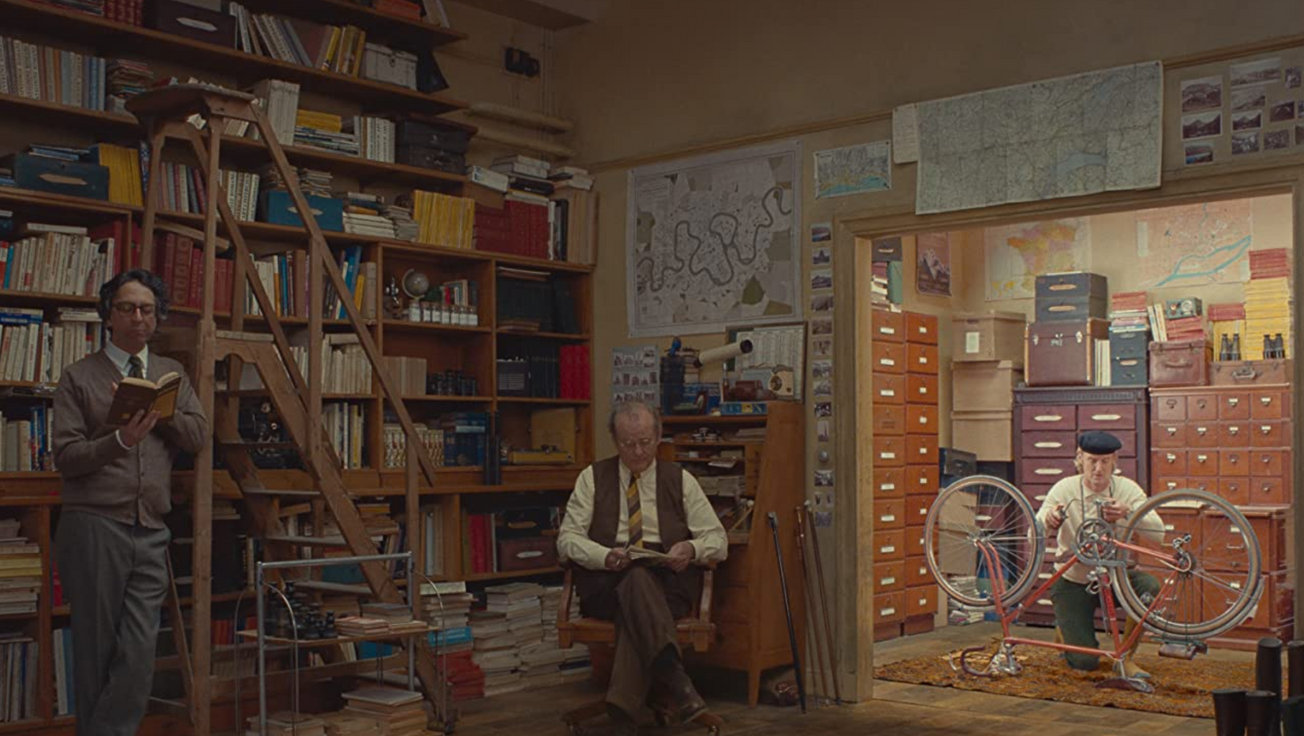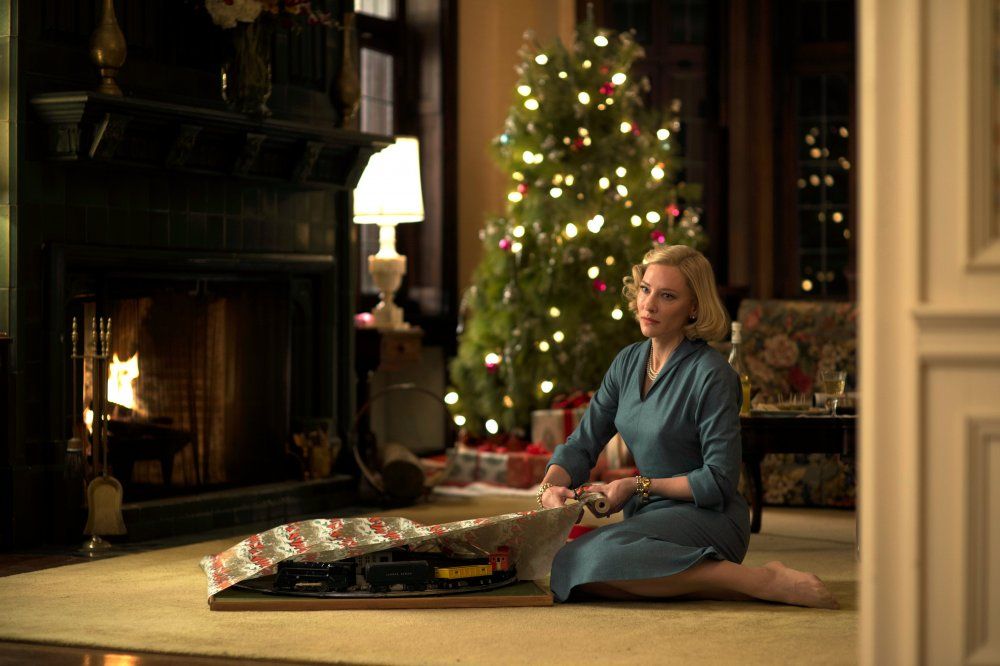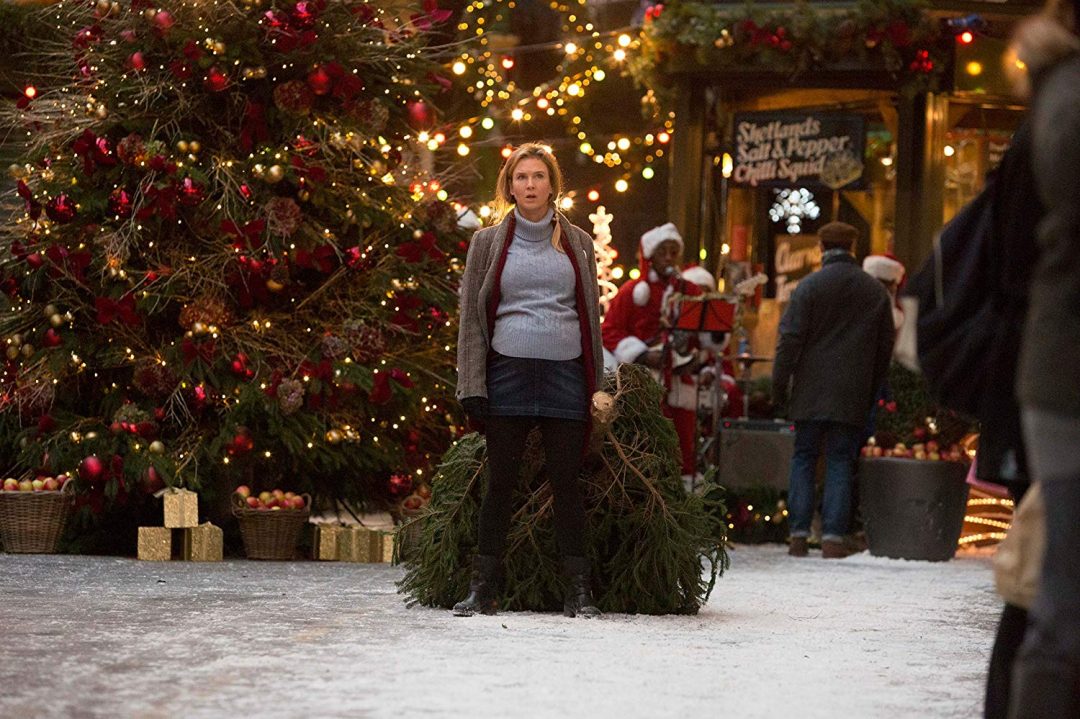By Pablo Mogollon, Cellular & Molecular Medicine, Third Year
The French Dispatch is a homage to journalism, and the solitary work of creatives, told through a somewhat disorganised collection of stories that incorporate Wes Anderson’s characteristic tone in its most overwhelming nature.
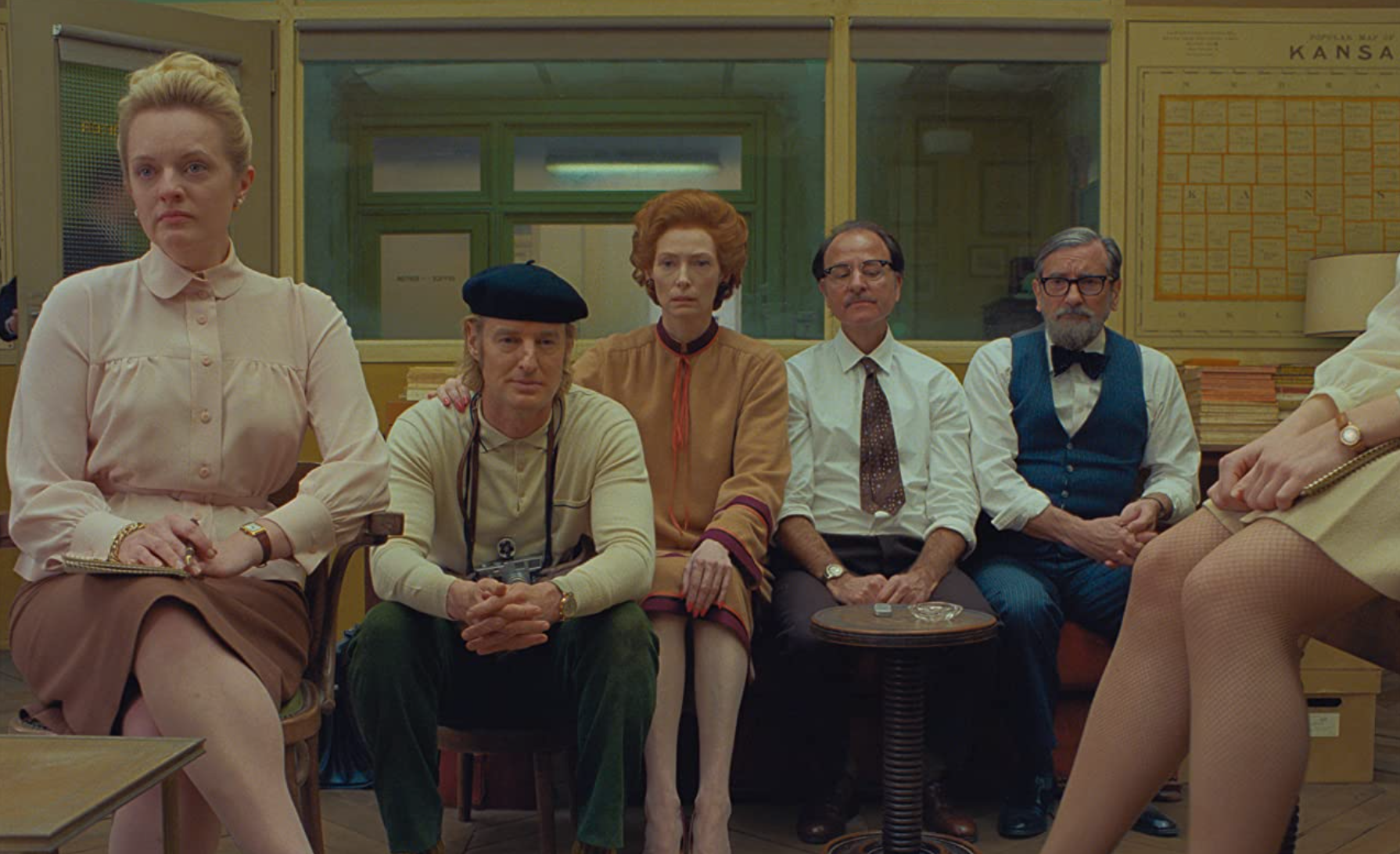
Set in the fictional town of 'Ennui-sur-Blasé', with all of Anderson’s beloved classical outdated French clichés included, the film details the final issue of The French Dispatch, an American magazine lead by Arthur Howitzer Jr. (Bill Murray), as written by his team of journalist confidants, who narrate several separate stories in the “arts, politics and diverse stories of human interest”. These include a jailed man with an artistic flair (Benicio del Toro), a young revolutionary student (Timothée Chalamet) and his affair with a journalist (Frances McDormand) during the 1968 Parisian student strikes, and the story of a food writer (Jeffrey Wright) as he’s entangled in a kidnapping case.
With all these segments filmed in varying aspect ratios, colour palettes, and even animated sequences they come together in a seamless and very pleasant fashion thanks to cinematographer and long-time collaborator Robert Yeoman.
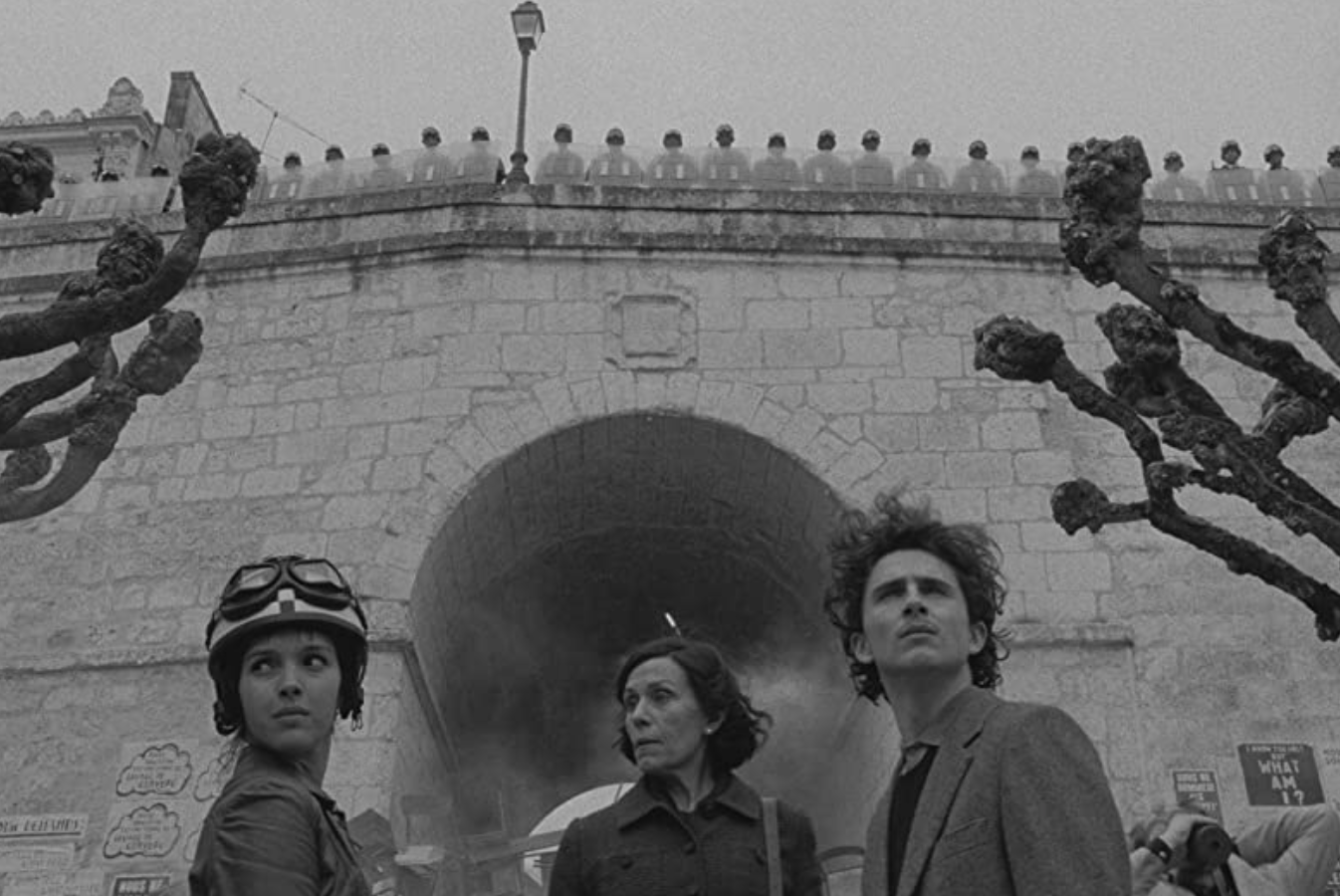
This anthology approach to the narrative is given through a very extensive and intricate screenplay that I can only imagine must have caused the Searchlight executives some serious distress. With a narrative and dialogue throughout the stories thats presents a lack of cohesion, the viewer is easily driven into a hazy understanding of the events, resulting in an overwhelming feeling which invites the thought that Anderson might have integrated too many ideas that don’t necessarily work together.
This causes a loss of empathy towards the characters, as their background and development are depicted in large amounts of dialogue through a very limited space of time.
However, a common characteristic that drives the whole film and its stories is the solitary nature of journalists and creative individuals. Each piece is portrayed in such a way that the principal characters denote a sense of loneliness and solitude, beautifully and movingly exemplified in a sequence involving Roebuck Wright (Jeffrey Wright), as he is asked why his work is usually centred around food.
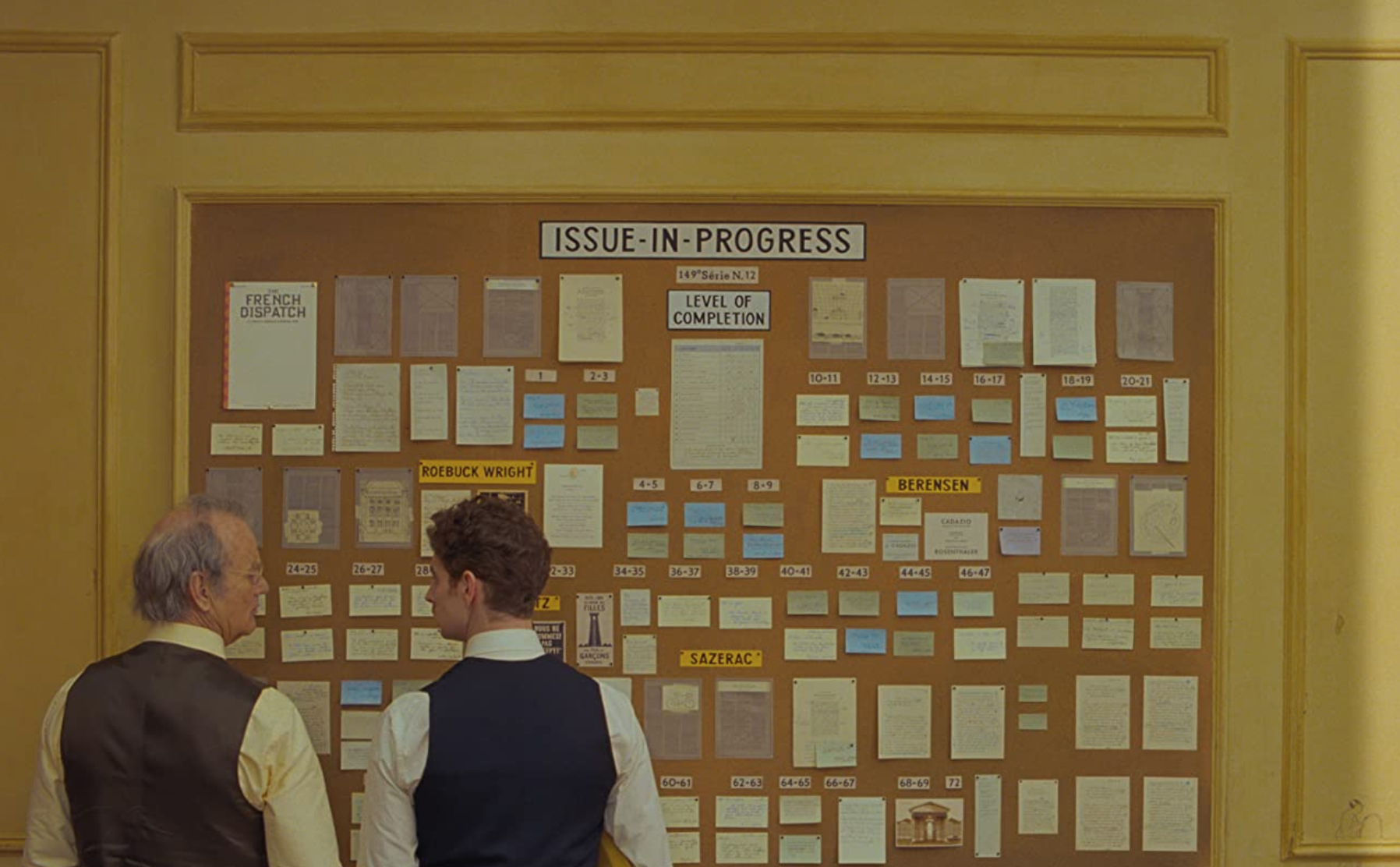
This common emotion through the film acts as compensation for the lack of individual characterisation, further emphasised by the closing sequence of the movie, where a fantastic change in emotional direction drives it to a satisfying close.
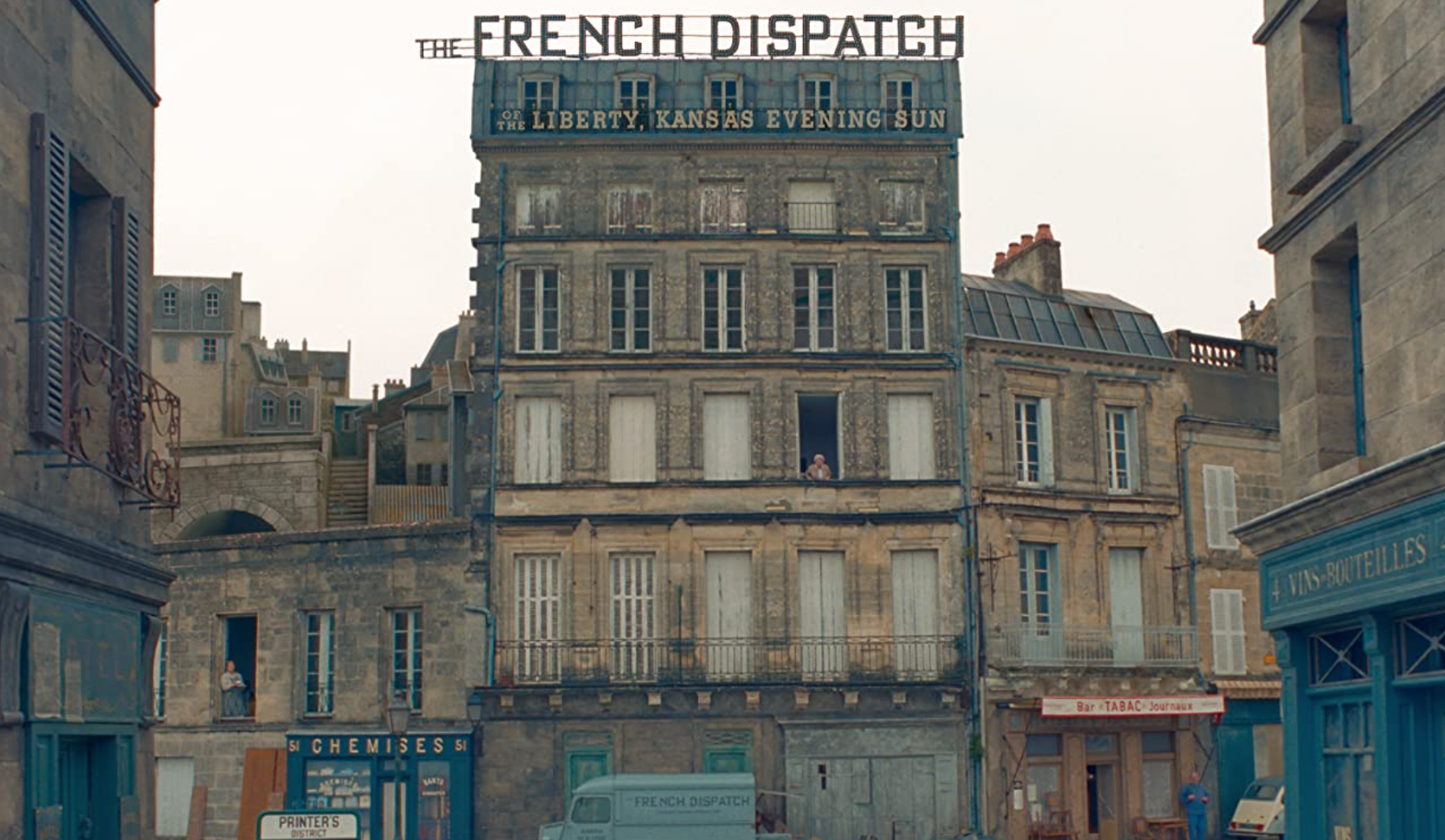
The film certainly owns Anderson’s unique tone, and involves what can only be seen as an inexplicably star-studded cast - but who wouldn’t want to take part? Wes has the ability to bring out a facet of the actors they can only portray in a work of his style, as impeccably shown in the film. The French Dispatch is an overwhelmingly grandiose Wes Anderson feature that, although slightly clumsy at some points, will not fail to attract the affection of his fans, and offers a very enjoyable experience that always brings a breath of fresh air to the standard of contemporary cinema.
Featured Image: IMDB
Will you be visiting the French Dispatch anytime soon?

